Will Russia act on its threat to use nuclear weapons?
Chinese academic Chu Zhaogen notes that while Russia tends to threaten the use of nuclear weapons, especially amid the current war in Ukraine, chances are that it is well aware that doing so would invite unwelcome and devastating consequences. This makes it unlikely that it will actually act on its rhetoric.
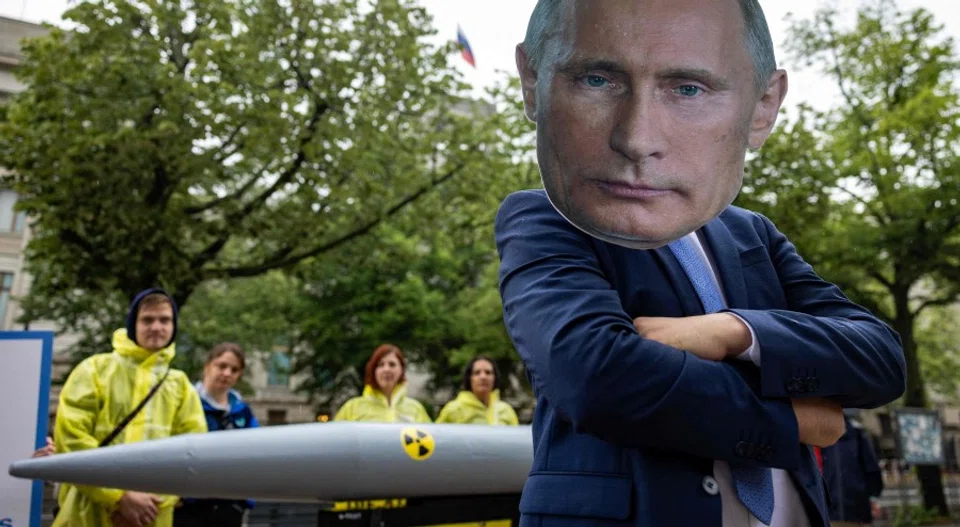
With Moscow experiencing multiple airstrikes within a month, its war with Ukraine is also impacting Russian territory, and Russian President Vladimir Putin's aim to "demilitarise and denazify" Ukraine has become impossible to achieve.
More rhetoric than action
Russia and Putin are caught between a rock and a hard place: either Russia admits that it is losing an unnecessary war, or it continues a war that it has little chance of winning. Putin's retreat in Ukraine has exacerbated deep-seated internal conflicts, with the most prominent example being the Wagner Group's mutiny on 24 June.
With Ukrainian forces landing in Crimea, the radical elements in Russia have attempted to deploy their trump card - nuclear weapons - to reverse the current situation. On 13 June, Sergey Karaganov, honorary chair of Russia's Council for Foreign and Defense Policy, wrote a commentary saying that Russia should consider a preemptive use of nuclear weapons to force a strategic retreat by the West.
On 30 July, deputy chair of the Russian Security Council and former Russian President Dmitry Medvedev also said that if Ukraine were to seize Russian territory with NATO's support, Russia would have to consider using nuclear weapons. However, while this open discussion by Russian officials on the use of nuclear weapons has raised significant concerns internationally, it is most likely verbal rhetoric with little chance of really happening.
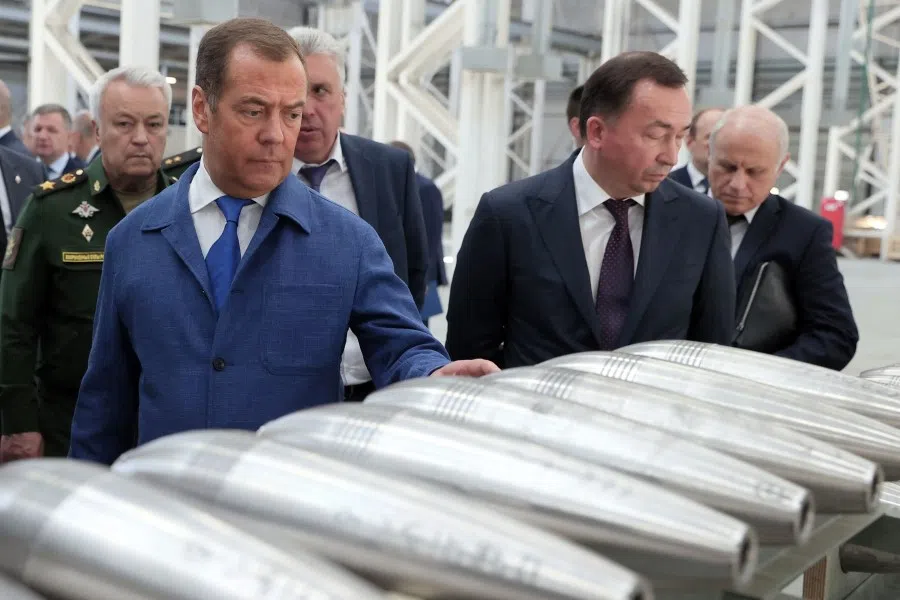
First, the nuclear weapons may not work and serve as a deterrent. While Russia's missiles undergo regular testing, the same could not be said for its nuclear warheads. The Soviet Union carried out 715 tests between 1949 and 1990, with its last nuclear test taking place on 24 October 1990.
Maintaining nuclear weapons is expensive, and in inheriting the Soviet nuclear deterrent, Russia regularly spends a significant portion of its military expenses towards maintaining nuclear arms. While the Russian federal budget is characterised by a high degree of opacity in relation to spending on defence and security, some estimates put nuclear spending at around 13% while others have predicted it to be as high as 30% of the total military spending. But just like other weapons of the Russian army, these nuclear warheads may not work as they could be stored for long periods without use or proper maintenance. Launching a dud warhead would be embarrassing for Russia.
Long chain of command to approve nuclear use
Second, the nuclear weapons may be intercepted, albeit quite difficult to do. Russia's nuclear weapons are closely monitored by the US and its European allies. Any abnormal activities would lead to defence systems being put on high alert and the deployment of interception equipment or anti-ballistic missiles to shoot down Russian missiles if necessary.
Also, Elon Musk's Starlink has shown its prowess in the Ukraine war. The network of data transmission satellites whereby each satellite emits omnidirectional beams, could theoretically enable the telemetry, warning and tracking of any spacecraft or missile trajectory, and could even evolve into a kinetic interception network for the interception of intercontinental ballistic missile warheads through a direct collision.
In 2021, Russian Deputy Foreign Minister Sergei Ryabkov expressed concerns about the US missile defence programme and the testing of the SM-3 Block IIA interceptors, as its development and deployment could render Russian nuclear weapons useless.
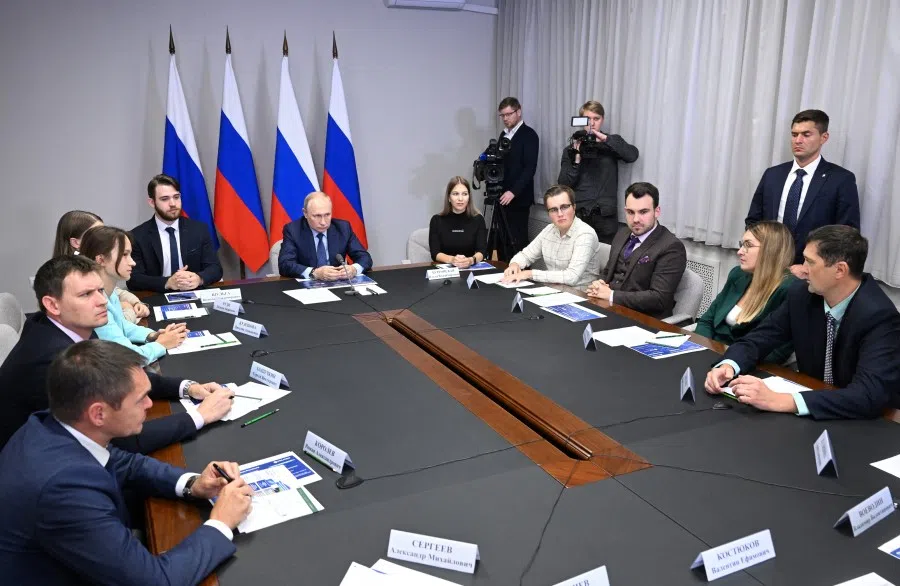
Third, the activation process may not go smoothly. In his commentary, Karaganov says that there is a long way to go - about two dozen steps - before Russia can truly use nuclear weapons.
Besides, the initiation of a nuclear war cannot be decided by Putin alone and would involve the entire Russian command system. Before reaching the nuclear launch silos, mobile launch sites and submarines, there would be at least three layers of checks (defence minister, chief of general staff and commander of the Strategic Rocket Forces) to prevent accidental or unauthorised missile launches. The smooth execution of these steps and elements would require at least a minimum level of consensus and support within Russia.
... the use of nuclear weapons could trigger a serious division within Russia, with public refusal to execute orders, or even evolving into a coup, could become a catalyst to overthrow Putin's rule.
Karaganov has called for "making nuclear deterrence a convincing argument again by lowering the threshold for the use of nuclear weapons [which has been] set unacceptably high, and by rapidly but prudently moving up the deterrence-escalation ladder." However, given the dire consequences of using nuclear weapons, Karaganov's argument is flawed. Most Russian experts and scholars believe that using nuclear strikes to force a strategic retreat is dangerous and unrealistic, like curing a headache with a guillotine.
If orders are ignored or revoked, it could be a death knell for the authority of Putin's regime. Worse yet, the use of nuclear weapons could trigger a serious division within Russia, with public refusal to execute orders, or even evolving into a coup, could become a catalyst to overthrow Putin's rule.
Attack on non-nuclear and NATO member states
Fourth, there could be large-scale Western retaliation. According to the Budapest Memorandum on Security Assurances signed in December 1994, Ukraine agreed to surrender the 1,900 strategic nuclear warheads left on its territory when the Soviet Union disintegrated, to join the Nuclear Non-Proliferation Treaty as a non-nuclear state in exchange for security assurances from Russia, the US and the UK, as signatories of the memorandum.
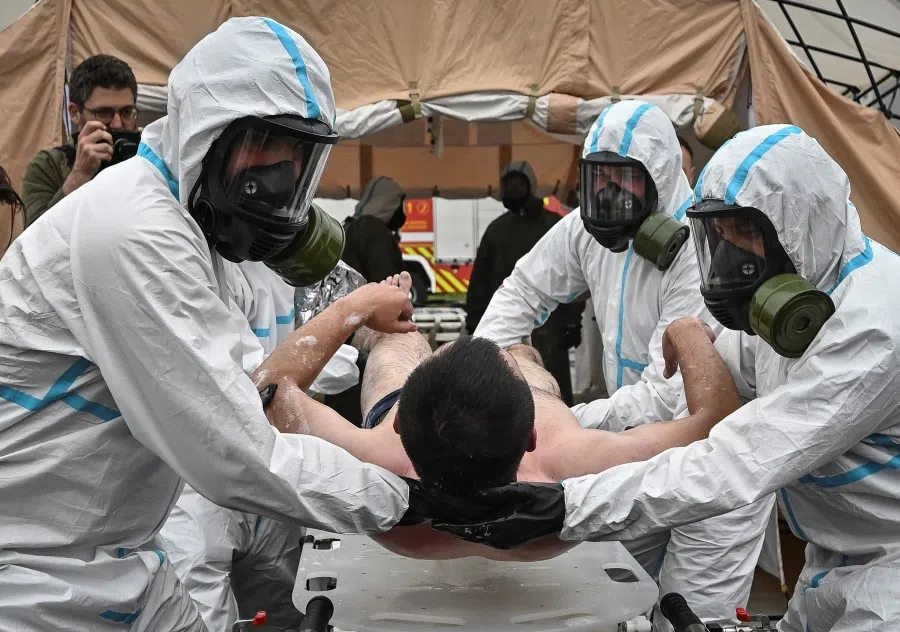
While the memorandum is not a legally binding formal treaty, the US and the UK still have a political obligation to fulfill their commitments in the memorandum by providing security assurances to Ukraine. Failure to do so will seriously damage the international credibility of the US and UK. Hence, if Russia were the first to deploy nuclear weapons, it would undoubtedly trigger a large-scale retaliation.
Former CIA director David Petraeus and several retired high-ranking US officials have said that if Putin were to use nuclear weapons, the US and its allies would destroy all of Russia's military forces and equipment in Ukraine, and sink its Black Sea fleet.
Furthermore, nuclear radiation could spread and affect NATO countries protected within the scope of Article 5, which could be interpreted as an attack on NATO member states. In this case, countries such as the US and the UK would deploy large-scale anti-nuclear radiation emergency forces under the guise of humanitarian assistance and establish no-fly zones in relevant areas within Ukraine. Russia's situation on the Ukrainian battlefield will only worsen if NATO becomes directly involved in the conflict.
Any actions against the taboo of using nuclear weapons will jeopardise Russia's relations with friendly countries such as China and India as well as non-allies, ultimately isolating Russia geopolitically.
No longer instill fear
Finally, even if Russia used nuclear weapons, it may not change the situation on the Ukrainian battlefield or help it achieve its strategic objectives. Nuclear strikes cannot break the will of Ukraine to resist, while the Russian forces are dispersed, particularly in eastern Ukraine where the armies from both sides are deeply engaged, which means that Ukraine is not an easy strategic target.
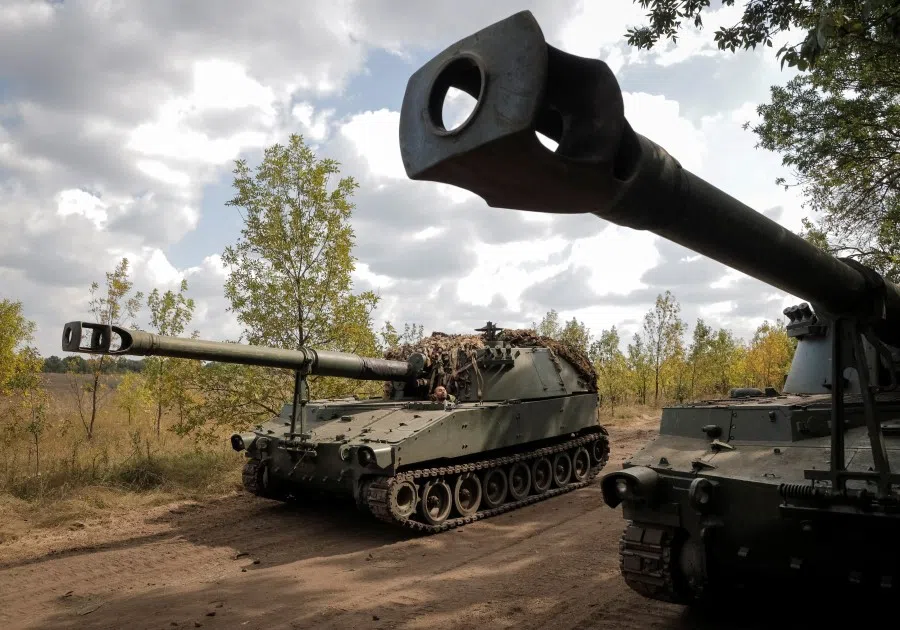
The Russian military is complex and poorly equipped, which makes it ineffective in a nuclear environment. Using nuclear weapons would put Russia in a tight spot militarily, and would also lead to the loss of support from neutral countries. Any actions against the taboo of using nuclear weapons will jeopardise Russia's relations with friendly countries such as China and India as well as non-allies, ultimately isolating Russia geopolitically.
According to a report in The Telegraph on 2 August, Medvedev has threatened Ukraine and its Western supporters with nuclear weapons nearly 60 times since February 2022. However, because Russia has repeatedly allowed its red lines to be crossed by the West without taking any actual action, its nuclear threats no longer instill fear and only invite ridicule.
So, the general assessment is that the likelihood of Russia using nuclear weapons in Ukraine is extremely low. The intention of these threats is to gain more negotiating leverage, exert pressure, and act as a deterrent against the West. However, the nuclear threats highlight the danger of the current situation.
Nuclear weapons should not be used, while a nuclear war, which guarantees loss, should never be fought. The international community needs to unite and collectively oppose the use or threat of nuclear weapons in Ukraine. All parties need to exercise restraint to prevent escalating conflict, and avoid a nuclear crisis on the Eurasian continent, which could open a Pandora's Box of human self-destruction.





